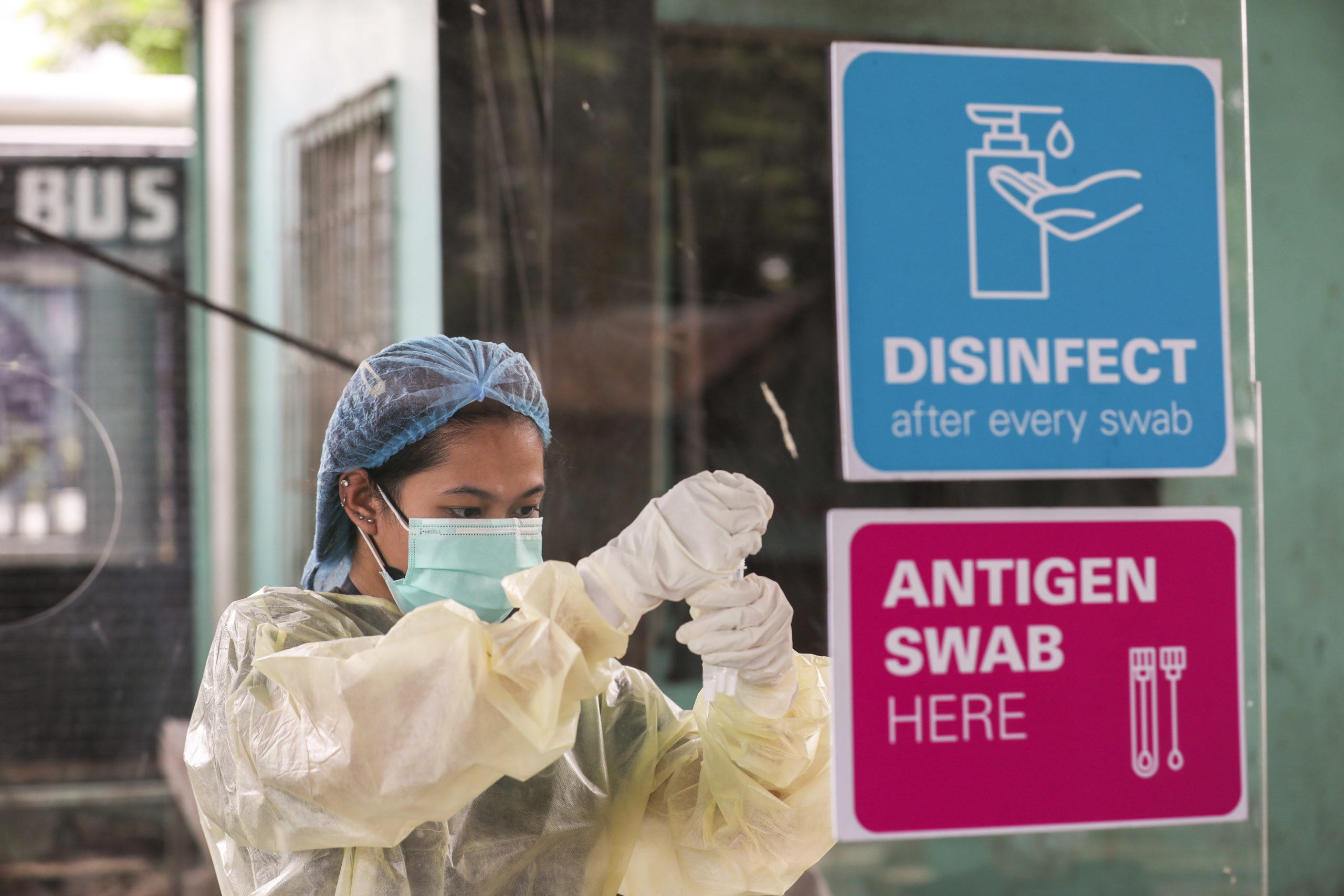Why antigen tests still not included in DOH COVID tallies

FILE PHOTO: The Swab Cab initiative of the office of Vice President Leni Robredo, offering free antigen testing in identified areas to help in local government efforts against COVID-19. Photo by Jay Ganzon / OVP
Despite the widespread use of antigen tests for the detection of the coronavirus, they are still not included in the country’s official COVID-19 tabulations due to the low level of compliance among local government units (LGUs) that are supposed to submit data regarding their application, according to the Department of Health (DOH).
Health Undersecretary Maria Rosario Vergeire, the DOH spokesperson, also stressed on Friday that not all of the positive results from the antigen test data could be considered qualified for inclusion in the official case count.
Vergeire recalled that during an earlier surge in cases caused by the Delta variant last year, the DOH already gave instructions to LGUs on how they could go about the submission of reports on antigen testing in their respective areas. It was around that time that the method was approved by the DOH for a faster identification of active cases in the community.
Further review
“Unfortunately, the compliance to these submissions had been low,” Vergeire said at a Malacañang press briefing.
From April 2021 to Jan. 8, 2022, total data submissions reaching the DOH covered only 1,168,801 antigen tests, of which 117,000 turned out positive, she added.
When those positive results were subjected to further review, only 30 percent qualified as “really confirmed positive” because most of the tests were done on asymptomatic patients, Vergeire said.
In earlier advisories, the DOH said antigen tests should be used on people with symptoms or those exposed to confirmed COVID-19 cases. The agency cautioned against the use of antigen tests just to screen persons to be admitted into event venues or workplaces.
Online reporting
“Let’s use the test [at the] appropriate time and appropriate use so that we can be able to have accurate results and we can include it in our reported cases,” Vergiere reiterated on Friday.
The DOH is still working on a system to better facilitate the online reporting of antigen test results to the agency, she said.
Such a system should enable even those using the test at home to log in and input their results and related details.
Vergeire said the people logging into the system could remain anonymous and the DOH “can just get the numbers of those using antigen tests.”
For more news about the novel coronavirus click here.
What you need to know about Coronavirus.
For more information on COVID-19, call the DOH Hotline: (02) 86517800 local 1149/1150.
The Inquirer Foundation supports our healthcare frontliners and is still accepting cash donations to be deposited at Banco de Oro (BDO) current account #007960018860 or donate through PayMaya using this link.